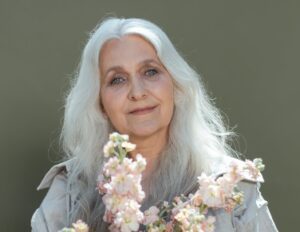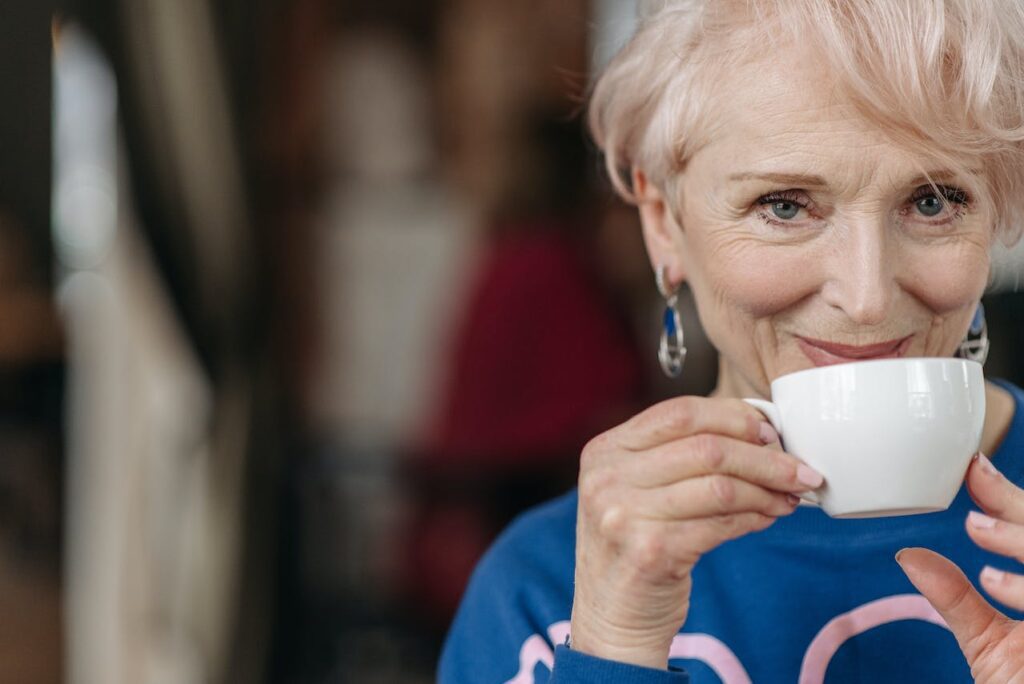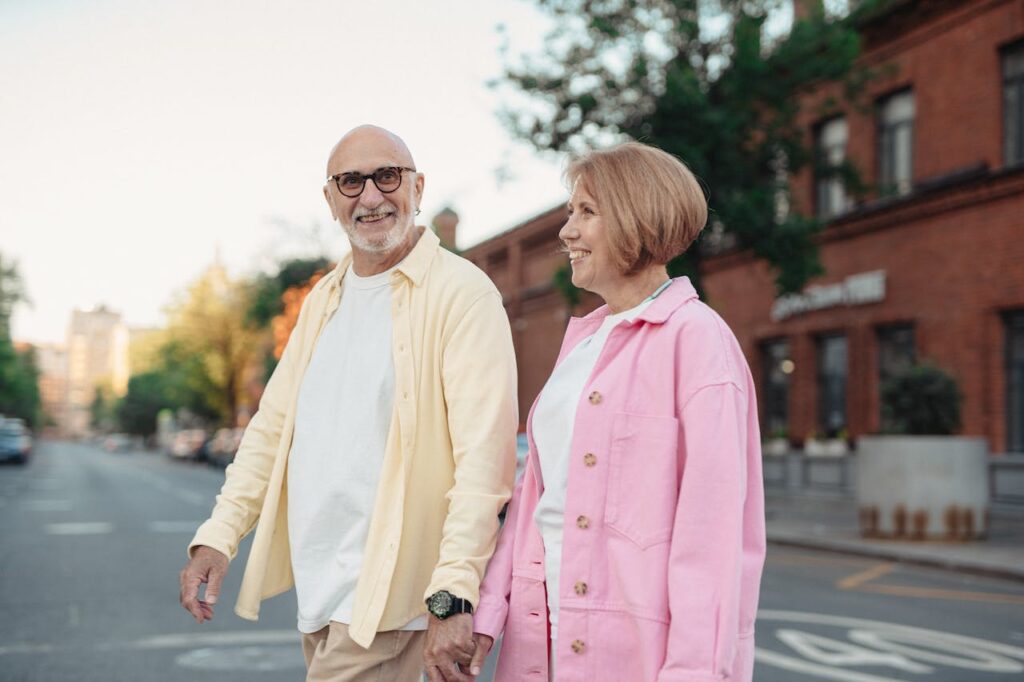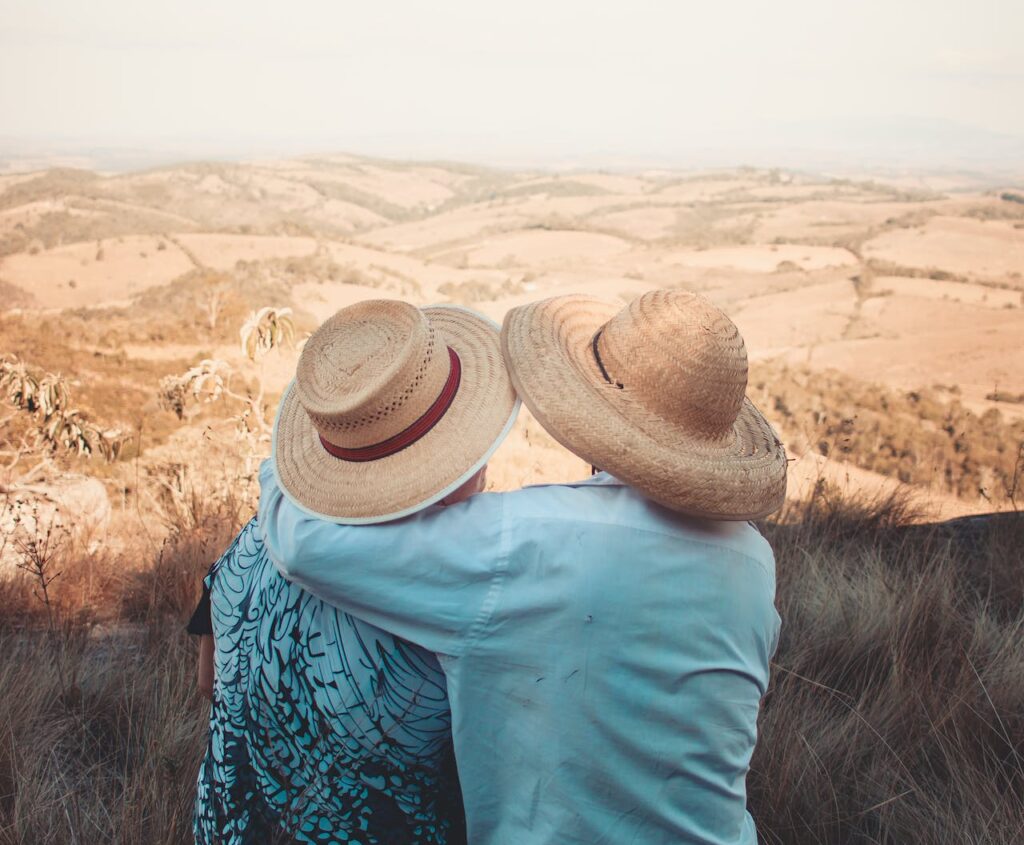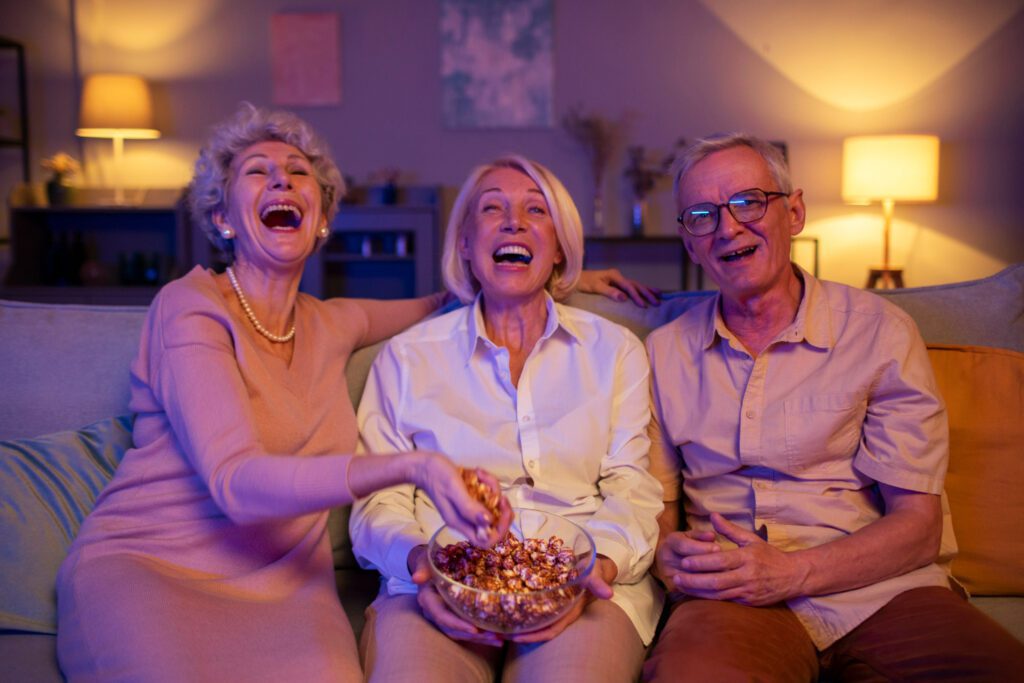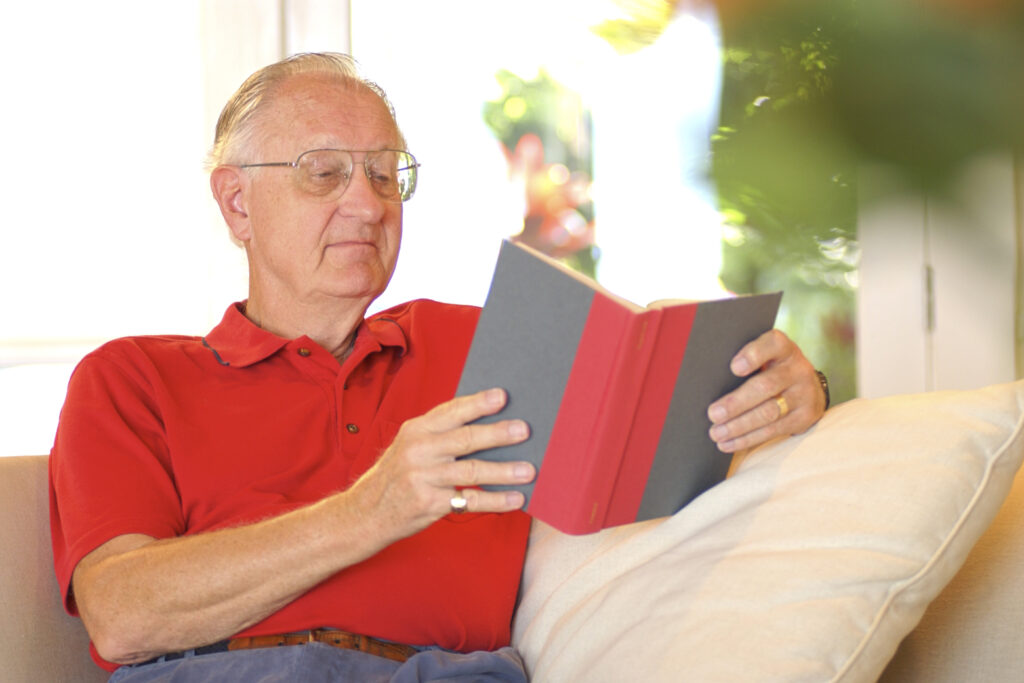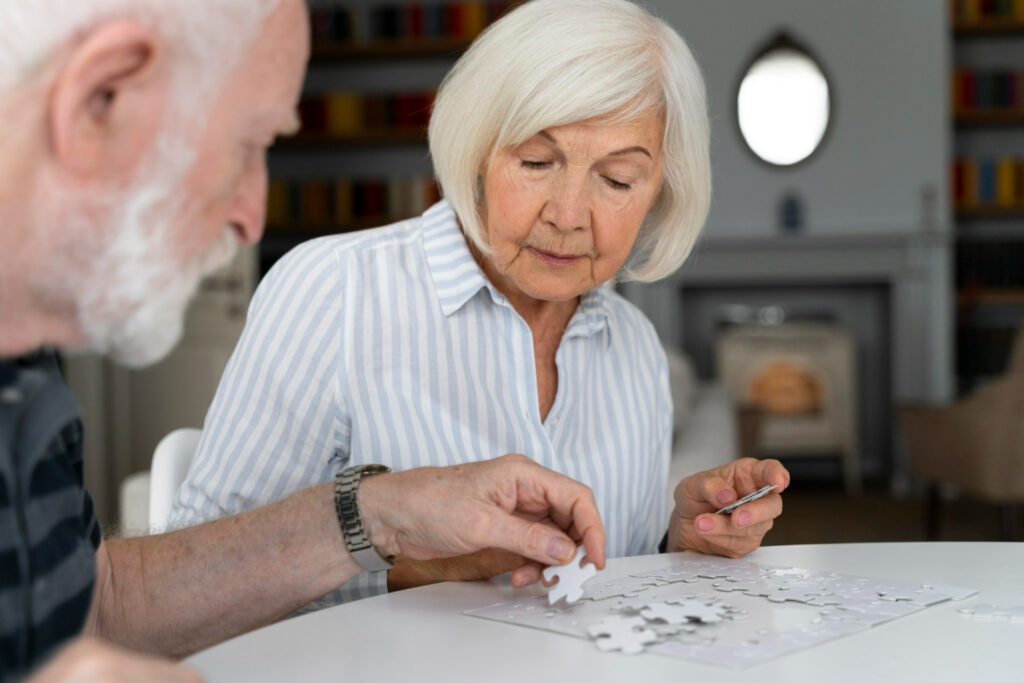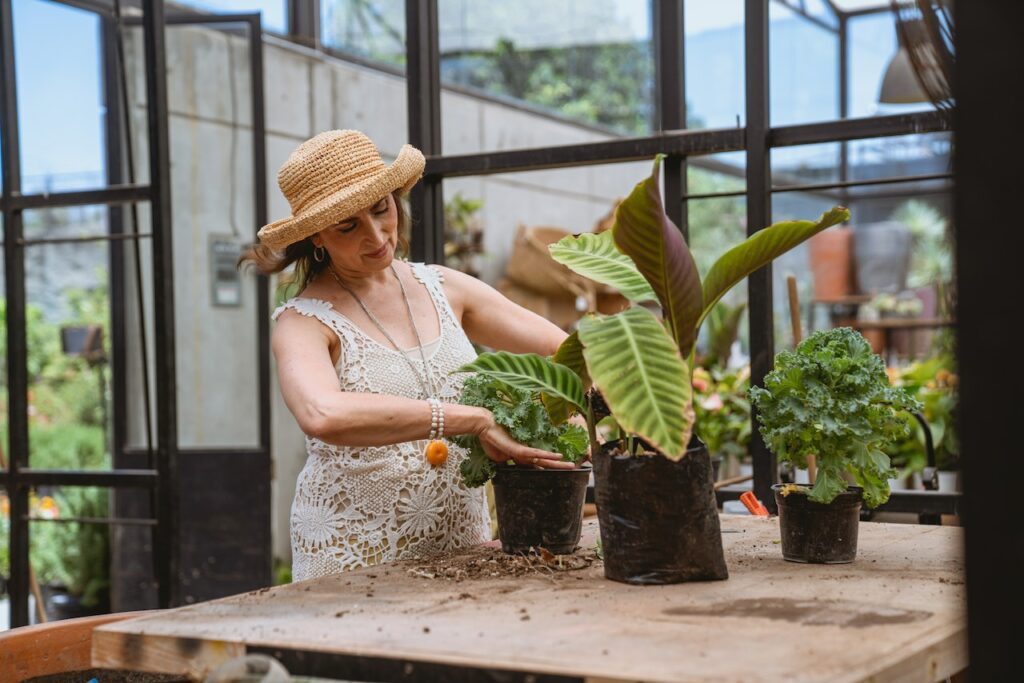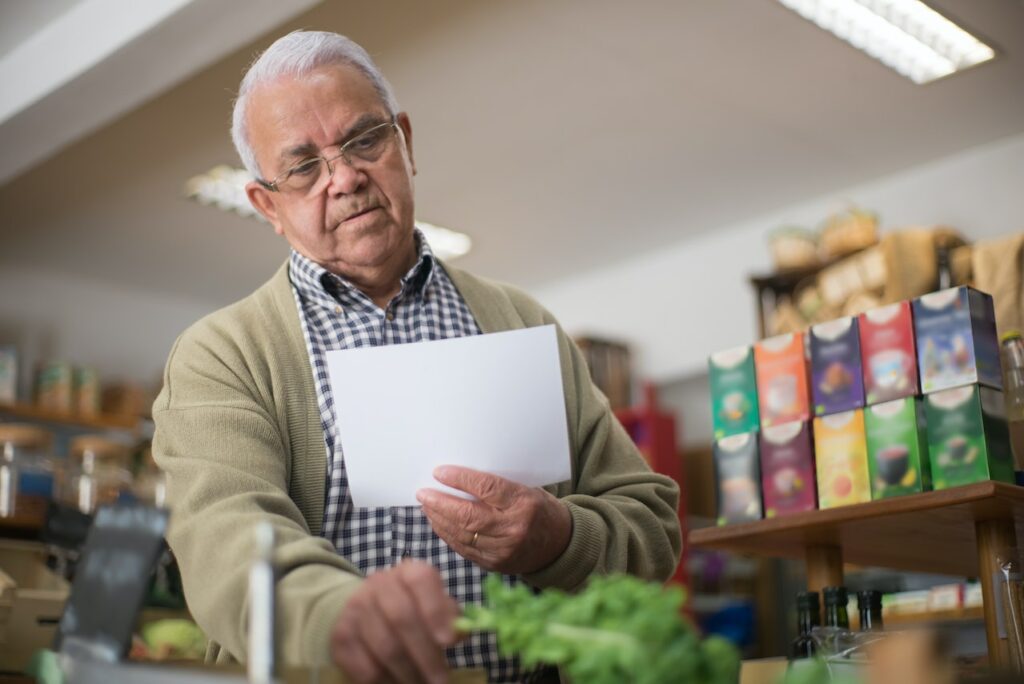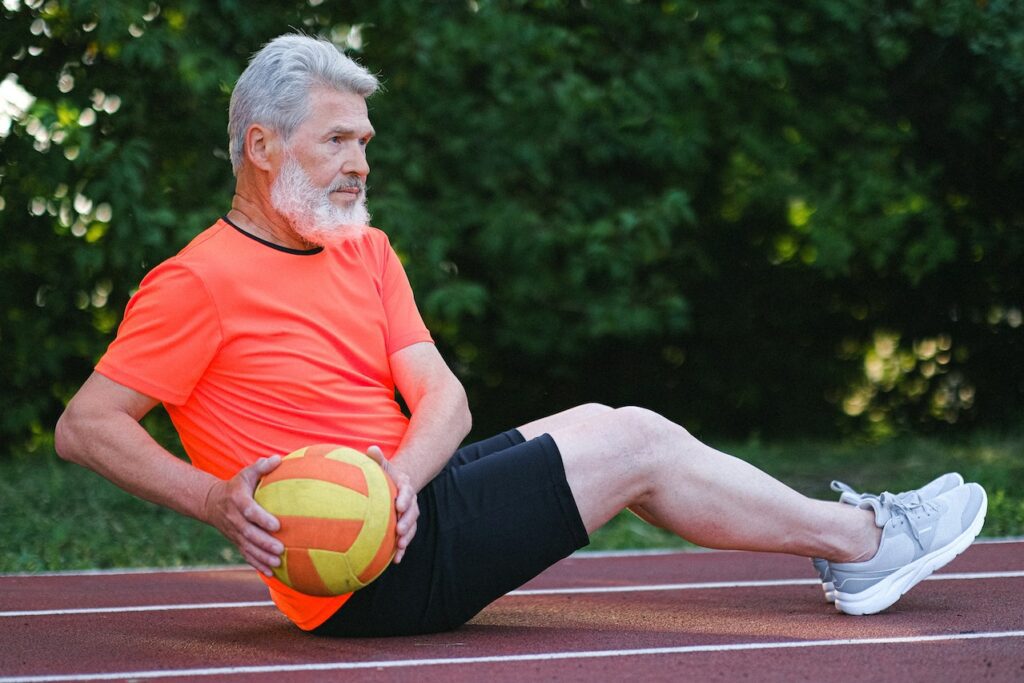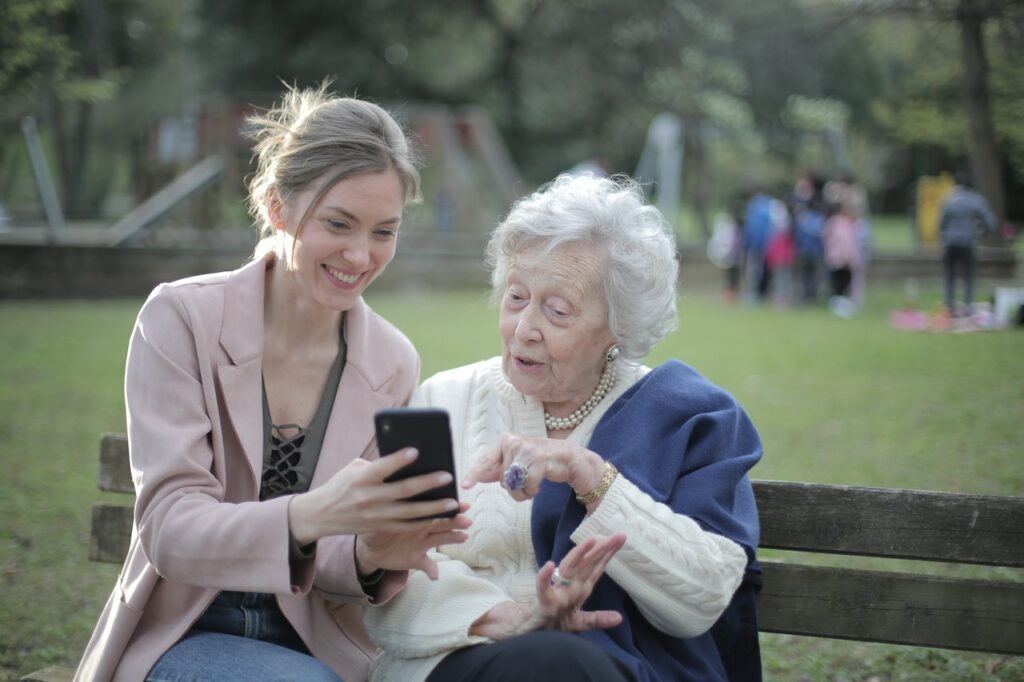Senior hair care: why and how does it impact you?
I knew our hair changes after 50, but I never imagined how it would impact me. In my fifties, I experienced thinning hair, as did many of my friends. My once-thick, glossy hair started to wane, prompting self-reflection and adaptability.
I recall the first realization. The morning process of brushing my hair revealed more strands than normal. As weeks passed, the evidence was too strong to ignore as a one-time event. This shift was physical and emotional. My hair—a big part of my identity—was changing, so must I.
Hair loss after 60 is about self-acceptance and perseverance, not simply appearance. Understand the many causes of hair loss, from hormonal fluctuations and dietary changes to the genetic lottery we all play. More significantly, it’s about uncovering our many caring and positive responses.
Join me as we find our hair in our senior years! Gentle care, dietary changes, and seeing the beauty in our silver strands may unlock empowerment and confidence. Let’s flip this page and start a new hair care tale with compassion, care, and grace.
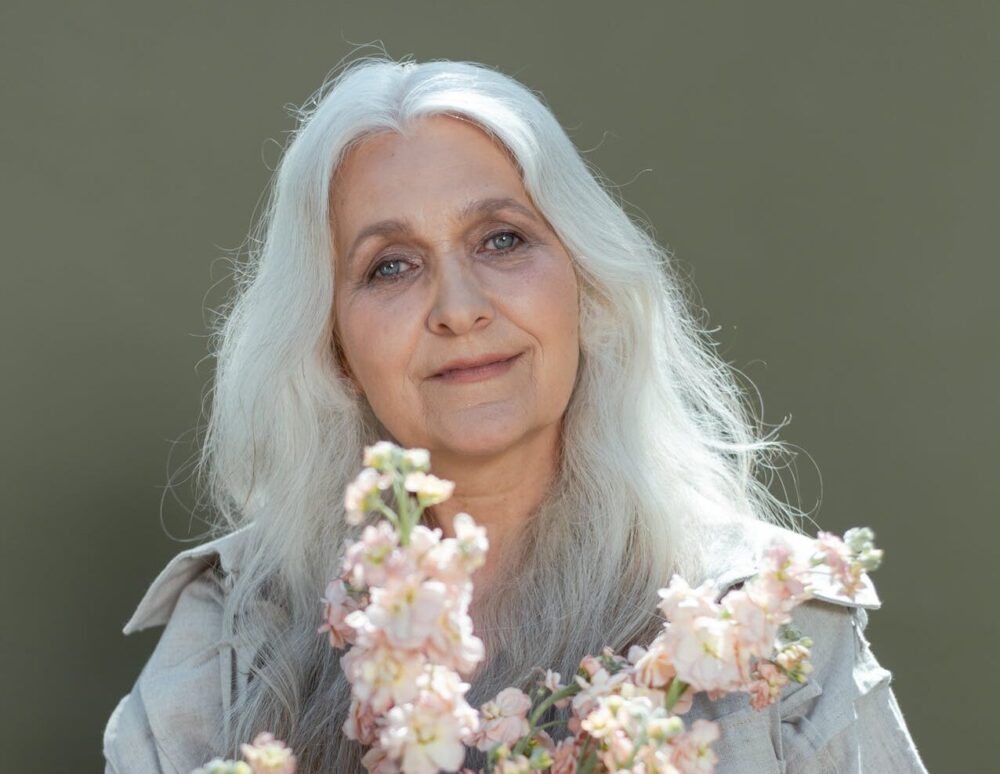
Not all hair loss is caused by aging!
Many people have hair loss after 60, but understanding its origins is the first step to managing it properly. I’ve been on this trip, and I was completely taken aback to find out that my hair loss had NOTHING to do with my age!
Of course, I don’t know you personally, but I felt that sharing this information may help somebody out there struggling with the same issue.
Hormonal changes often cause senior hair loss. Hormonal changes in old age might alter hair health and growth. In males, dihydrotestosterone (DHT) shrinks hair follicles, causing pattern baldness. Post-menopausal hormonal changes may thin and weaken hair in women.
Nutrient deficits are important, too. Our diets affect hair health, and as we age, our nutritional demands alter. Iron, protein, and vitamin deficiencies, especially B-vitamins, may weaken and lose hair. Seniors should eat a balanced diet with all the nutrients they need for hair growth.
Of course, genetics play a big part in the grand scheme of things too. If hair loss runs in your family, you may get it too. We can’t alter our genetics, but knowing it may help us take proactive efforts to reduce its effects.
FUN FACT: An intriguing truth is that hair reacts to seasons. According to research from the British Journal of Dermatology, hair loss increases in late summer and autumn. We keep more hair in winter for warmth and protection, an evolutionary trend.
Understanding these variables might change the way senior hair care routine looks. Awareness is crucial, whether we are changing our diet, seeking medical counsel, or accepting this as part of aging. Although hair loss after 60 is typical, it may be elegantly handled with the appropriate information and strategy.
What foods improve your hair after 60?
In fighting hair loss after 60, “you are what you eat” is especially true. After experiencing hair health issues, I’ve learned that lovely locks frequently start on your plate.
That secret?
Nutrition-rich in vitamins and minerals for hair development!
Let’s discuss your kitchen hair heroes for a bit. We start with Biotin (Vitamin B7), the ‘hair growth vitamin.’ It is essential for hair growth. Iron is also important. It helps red blood cells provide oxygen to hair follicles for optimal development and strength. Protein—hair’s building block—is also important. Low protein levels might cause hair loss or brittleness.
Just to make things even easier for you, I’ll list five superfoods that are yummy and good for your hair:
- Spinach is nutrient-dense. Spinach’s iron, folate, and vitamins A and C boost hair development and scalp health.
- Biotin- and protein-rich eggs are great for breakfast. They’re hair-friendly and perfect for scrambling, poaching, and boiling!
- Salmon: Omega-3 fatty acids in salmon boost hair health. Protein and B vitamins are abundant in it.
- Berries: Strawberry, blueberry, and other berries are rich in vitamins and minerals, especially Vitamin C, which helps collagen formation and iron absorption.
- Almonds, flaxseeds, and chia seeds provide fast nutrients. They include hair-healthy omega-3s, zinc, and selenium.
You may nourish your hair and taste senses by consuming these items. Remember, a healthy diet leads to healthy hair!
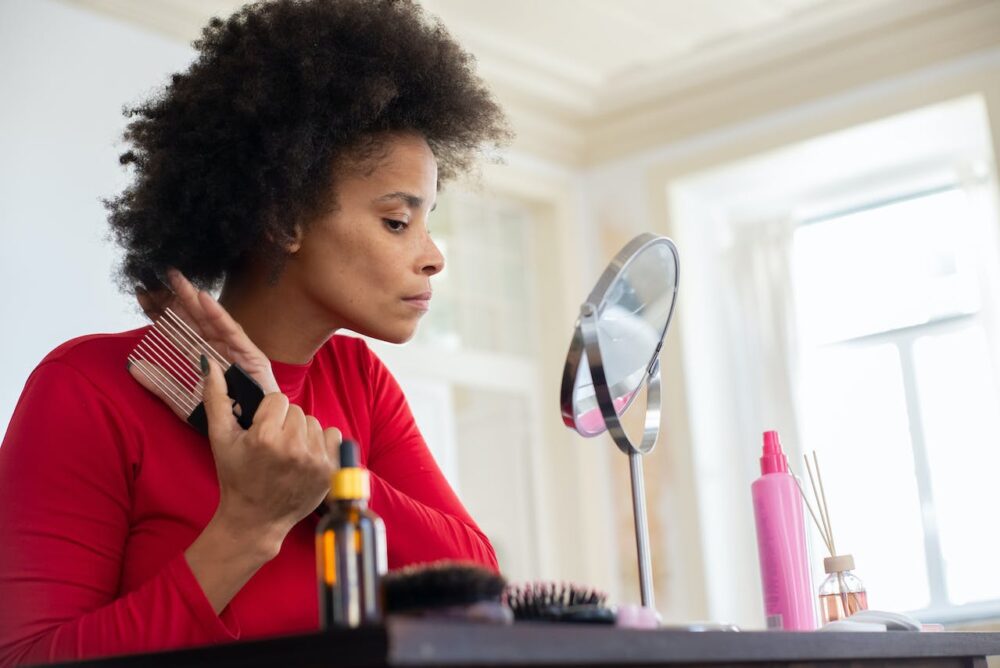
Remember: not all hair products work for seniors
Thinning hair may be difficult as we elegantly enter our 60s and beyond. This is a story about creative problem-solving and clever design choices, not just about challenges! Luckily, there are several hairstyles and products that may make thinning hair fuller.
- Start with hairstyles. Create the illusion of bulk and thickness. Shorter haircuts with root lifts work better for this. A layered bob or textured pixie cut may give volume and thickness to your hair. A well-groomed crew cut or longer cut with textured layers may make men’s hair seem thicker.
- Hair care goods next. There are several hair-thinning products on the market, but pick cautiously. Kerastase and other high-quality companies offer lines that address this problem. Kerastase’s Densifique line revitalizes and densifies hair. Specifique, Kerastase’s scalp treatment range, is another wonderful choice for hair loss.
- Choose volumizing or thickening products. Light shampoos and conditioners are best for hair. Minoxidil may also be worth considering, which promotes hair growth and thickness.
In addition to shampoos and conditioners, styling products might be important. Mousse and volumizing sprays instantly lift roots, making hair look fuller. Make sure to avoid strong waxes and gels, which may clump hair and highlight thinning. Trust me, I’m speaking from personal experience!
Remember that these products and techniques may enhance your hair’s look, but you must treat it carefully. Avoid heat styling and use a diffuser and lower heat setting on hair dryers.
Which hair care routine suits seniors best?
Senior hair care, especially for thinning hair, requires gentleness and compassion. Treat your hair gently with products and practices that reduce damage and maximize health and vitality.
- Shampooing is the foundation of every hair care program. Use gentle, sulfate-free shampoos that don’t remove oils. These milder solutions preserve the scalp’s natural balance for healthy hair development. Find shampoos with calming, nourishing components like aloe vera or chamomile.
- Conditioning is next. A lightweight, nourishing conditioner may detangle and moisturize hair without weighing it down. Older hair might benefit from argan oil or keratin for strength and suppleness.
- Whenever possible, avoid harsh chemicals. No to regular chemical treatments like perms or hair coloring, which damage sensitive hair. When dyeing your hair, use ammonia-free dyes and wait between colors.
- Minimize heat styling. Overusing hair dryers, curling irons, and straighteners may damage hair. Use heat protectant and the lowest heat setting while using these tools. Make the most of your natural hair texture.
Proceed to natural therapies and treatments. A weekly coconut, almond, or olive oil massage helps nourish the scalp and hair. These oils hydrate and increase scalp blood flow. A DIY avocado-honey hair mask is another deep conditioning alternative.
This step-by-step program for seniors with thinning hair works:
- Weekly Oil Massage: Gently massage the scalp with warm coconut or almond oil. Keep it on for an hour or overnight to nourish deeply.
- Gently wash with sulfate-free shampoo. Hot water might damage your scalp, so use lukewarm.
- Nourishing Conditioner: Apply a lightweight conditioner to the ends. Rinse well.
- Mash avocado and honey to make a weekly hair mask. Leave for 20–30 minutes, then rinse.
- Let your hair air-dry naturally. Cool-setting hair dryers are recommended.
- Gently detangle hair with a wide-tooth comb to minimize damage.
Remember to treat hair like precious linen. You can keep your hair healthy and beautiful as it ages with a delicate touch and proper maintenance.
Scalp massages are more than a treat!
Scalp massage is a lovely but frequently forgotten method for gracefully aging. This easy, therapeutic process relaxes and promotes healthy hair growth, a worry for many as we age.
Regular scalp massages feed hair follicles. Gentle scalp stimulation improves blood circulation. This enhanced blood flow delivers more oxygen and nutrients to the hair roots, promoting hair growth and vitality. Like caring for a garden, our hair needs frequent, loving treatment to grow.
Scalp massage is a very simple and effective senior hair care solution. One may cover the forehead to the nape of the neck by gently pressing the fingers over the scalp in circular strokes. This approach promotes hair follicles and calms the mind, which is very helpful in our elderly years.
The National Institute of Health found that scalp massages work. Participants who got 4-minute scalp massages every day for 24 weeks had thicker hair at the end. This shows the power of this basic technique.
Include scalp massage in your regular practice without much time or equipment. It may be included in your morning or evening routine for quiet self-care. A little coconut or almond oil may intensify the massage and nourish the scalp.
Finally, scalp massage for elders is a type of self-care that benefits the mind and body. In fat, stress can be a huge factor in hair loss at any age – but especially after 60. If you’re struggling with anxiety or other stressors in your life, make sure to read my in-depth article on 6 Strategies for Coping with Retirement’s Psychological Impact!
Do you have any other tips to help seniors’ hair thrive? If so, make sure to drop a comment below and tell us all about them!




